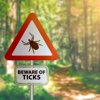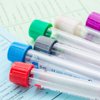Fritextsökning
Artiklar per år
Innehållstyper
-

Getinge stärker närvaron på läkemedelsområdet i miljardaffär
Getinge förvärvar amerikanska High Purity New England, som tillverkar engångsprodukter för bioprocesser. Den svenska medtech-jätten betalar närmare 1,3 miljarder direkt, men affären kan växa till att kliva över tremiljarderstrecket.
-

Norwegian company wins bidding battle for Sensidose
The lengthy battle to acquire medical device company Sensidose is apparently over. Generic medicines company EQL Pharma is pulling out, selling its shares and leaving the way open for Norwegian company Navamedic.
-

Samuel Lagercrantz: The government’s performance in healthcare and life sciences so far
Since the change of government in Sweden, developments in the healthcare sector have shown promising signs, but the outlook in life sciences is less promising, writes Samuel Lagercrantz in an editorial.
-

The first Lyme disease vaccine faces a delay
Pfizer and Valneva’s Lyme disease vaccine, which could be the first of its kind, is facing delays of about a year. The reason is problems at trial sites in the United States, which have forced the companies to drop half of the participants in an ongoing Phase III study.
-

Borreliavaccin försenas efter strul med studie
Pfizers och Valnevas borreliavaccin, som kan bli det första i sitt slag, försenas med åtminstone ett år. Orsaken är problem vid prövningssajter i USA som tvingat bolagen att stryka hälften av deltagarna i en pågående fas III-studie.
-

Devyser fick Swecares exportpris: "Fantastisk tillväxtresa"
Diagnostik- och gentestbolaget Devyser är vinnare av årets Swecare Export Award för att ha "satt svensk innovation inom hälsa och sjukvård på världskartan". Priset som ”rising star” gick till sepsisbolaget Algodx.
-

Confidence in childhood vaccines is in decline worldwide
Since the pandemic, confidence in vaccinating children has plummeted. In a new report, UNICEF urges world leaders to act before the situation worsens. In 52 out of 55 countries surveyed, public perception of the importance of vaccinating children has declined.
-

New diagnostic rules raise concerns
In a panel discussion, several voices from academia and the industry expressed concerns about the transition to the new regulatory framework for in-vitro diagnostics (IVDR). They argue that it may create significant differences between regions
-

New drug alert in the US: Rise in overdoses linked to the use of drugs for animals
A combination of the synthetic drugs fentanyl and xylazine, an animal tranquilizer, has been labelled a “growing threat” by the White House due to its role in the ongoing opioid crisis in the US.
-

Kristdemokraterna rekryterar från Sanofi
Jonas Sareld, Public Affairs Manager vid Sanofi, blir kanslichef för Kristdemokraterna i Region Stockholm.
-

Konkurrenskraftig klinisk forskning mål för ny utredning
Alf-avtalet står i fokus när regeringen nu tillsätter en ny utredning med syfte att lägga fram ett underlag inför en omförhandling av avtalet.
-

Stor kartläggning av svensk läkemedelsutveckling - "Väldigt imponerande bidrag"
Trots tuffa tider planerar två av tre life science-bolag att nyrekrytera – och antalet läkemedelsprojekt fortsätter att öka. Det visar branschorganisationen Sweden Bios stora kartläggning av svensk läkemedelsutveckling.
-

The Swedish National Board of Health and Welfare rejects prioritising andrology as a speciality
Male infertility can be linked to a shorter lifespan and several severe diseases, but when couples who want children are examined, the focus is on the woman. Experts in the field claim that andrology needs to become a speciality in Sweden to increase awareness and knowledge. But the Swedish National Board of Health and Welfare says that it is not a priority.
-

“An entire industry is about to be wiped out”
According to Jennie Ekbeck, CEO of Umeå Biotech Incubators, Sweden risks not having any small diagnostic companies left in five years.
-

How critical are the “Spermageddon” reports? – Researchers call for action
A much talked about meta-study indicates that sperm concentration in men’s seminal fluid has halved in 40 years. Experts in andrology that Life Science Sweden speaks to believe that the results must be taken seriously, and call for action from the Swedish authorities.
-

Column: ”Life as a F1 race”
"The F1 car makes several pit stops during a race and during a lifetime the human being may also have to come in several times for maintenance", Björn Ursing writes in a column.
-

Rapid development in blood analysis – “Sweden is leading the race”
Thousands of analytical tests using just one single drop of blood. What was revealed as a hoax just a few years ago is now a reality, according to KTH professor and serial entrepreneur Mathias Uhlén.
-

Studie: Enkel dos antibiotika kan förhindra var tredje fall av sepsis vid förlossning
En enda dos antibiotika minskar kraftigt risken för sepsis under förlossning och kan därmed rädda miljontals kvinnor i låg- och medelinkomstländer från att drabbas av det livshotande tillståndet, enligt ny forskning.
-

Individual DNA passport could result in fewer drug side effects
You may be required to show a DNA passport when you pick up medicines at the pharmacy in the future. According to a new study, patients might suffer 30% fewer side effects if the drug treatment is adapted to their genes.
-

Claims of life science companies fleeing abroad is a myth according to survey
The claim that life science companies are moving abroad is exaggerated. In fact, only a tiny percentage is leaving the country, according to a survey.
-

Column: ”We need to exploit the benefits of the regulations“
You don’t need to search long on the Internet to find lists of the most innovative countries with Sweden ranking at the top. Sweden generally offers good conditions for growing new solutions, but it is also becoming increasingly clear that we are challenged in one area – regulations, writes Björn Arvidsson in a column.
-

The government proposes fines for pharmaceutical companies that fail to notify drug shortages in time
According to a compilation from the Swedish Medicines Agency, the number of residually notified medicines increased by 54 % in Sweden last year compared to the previous year. In a bill presented by the government a number of proposals are put forward to counteract the problem.
-

"Unclear proposal from the EU Commission on how to solve the MDR challenges"
Even before the EU regulation on medical devices (MDR) came into force, medical technology companies and doctors were concerned that it would endanger the availability of medical devices in the EU. Unfortunately, the fears have come true.